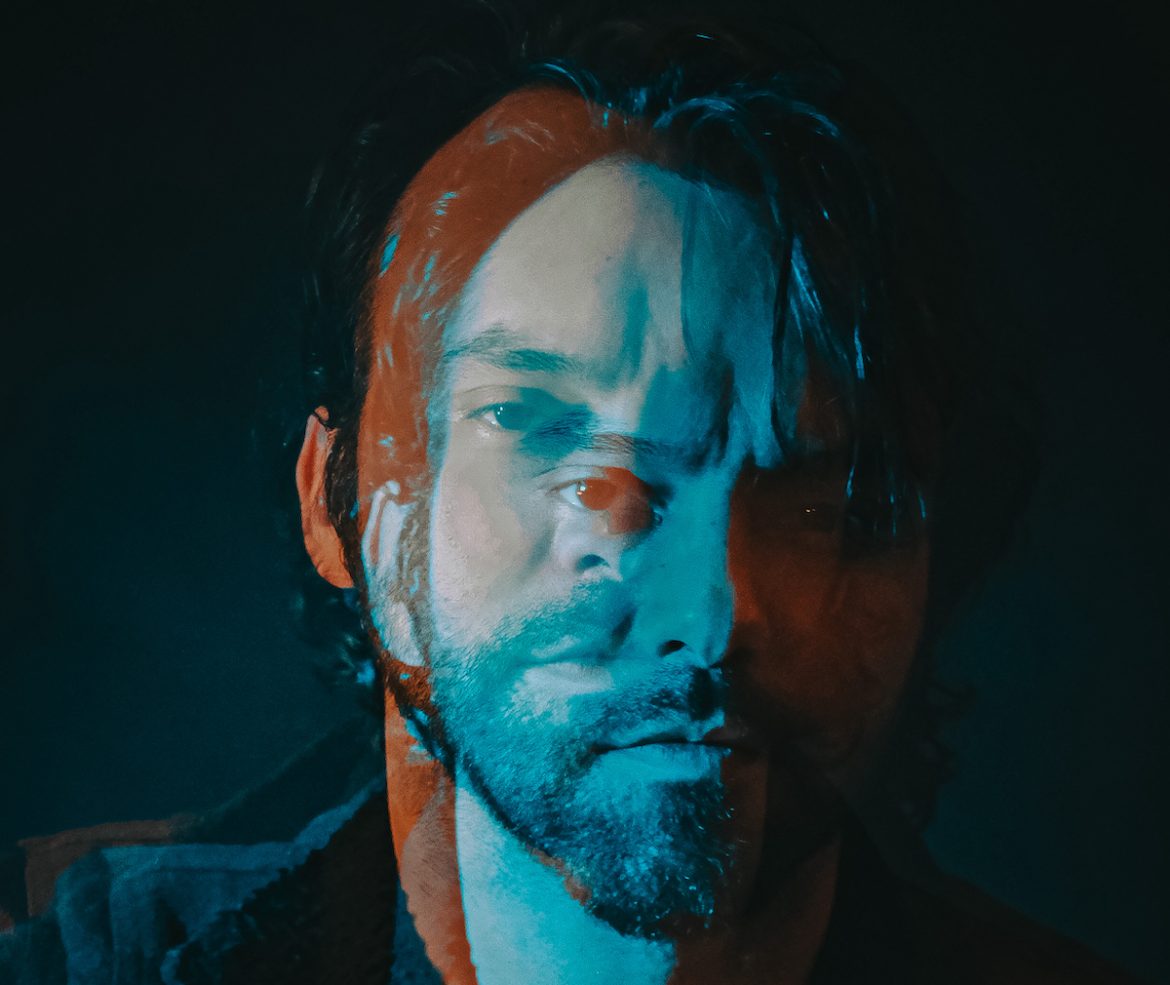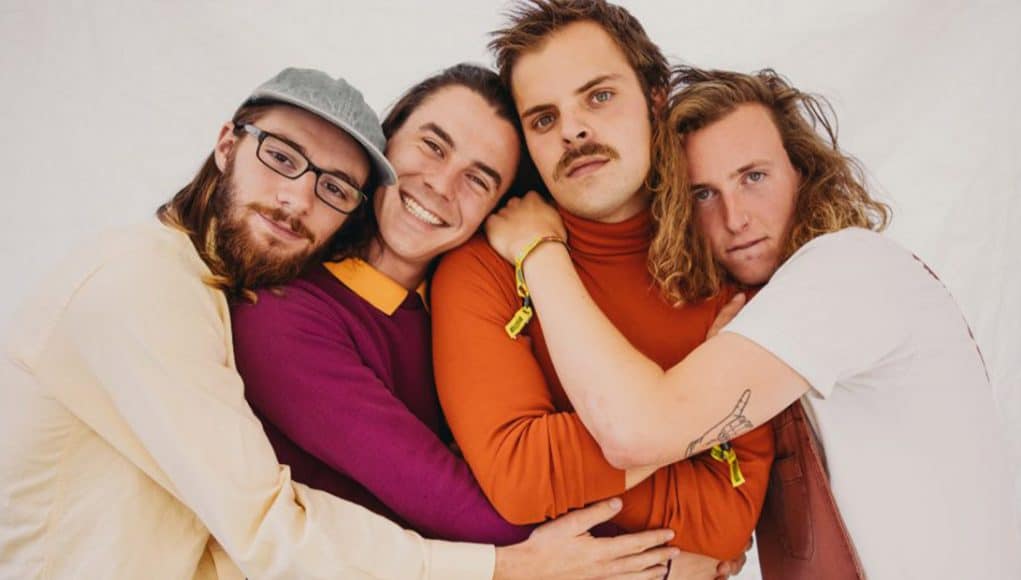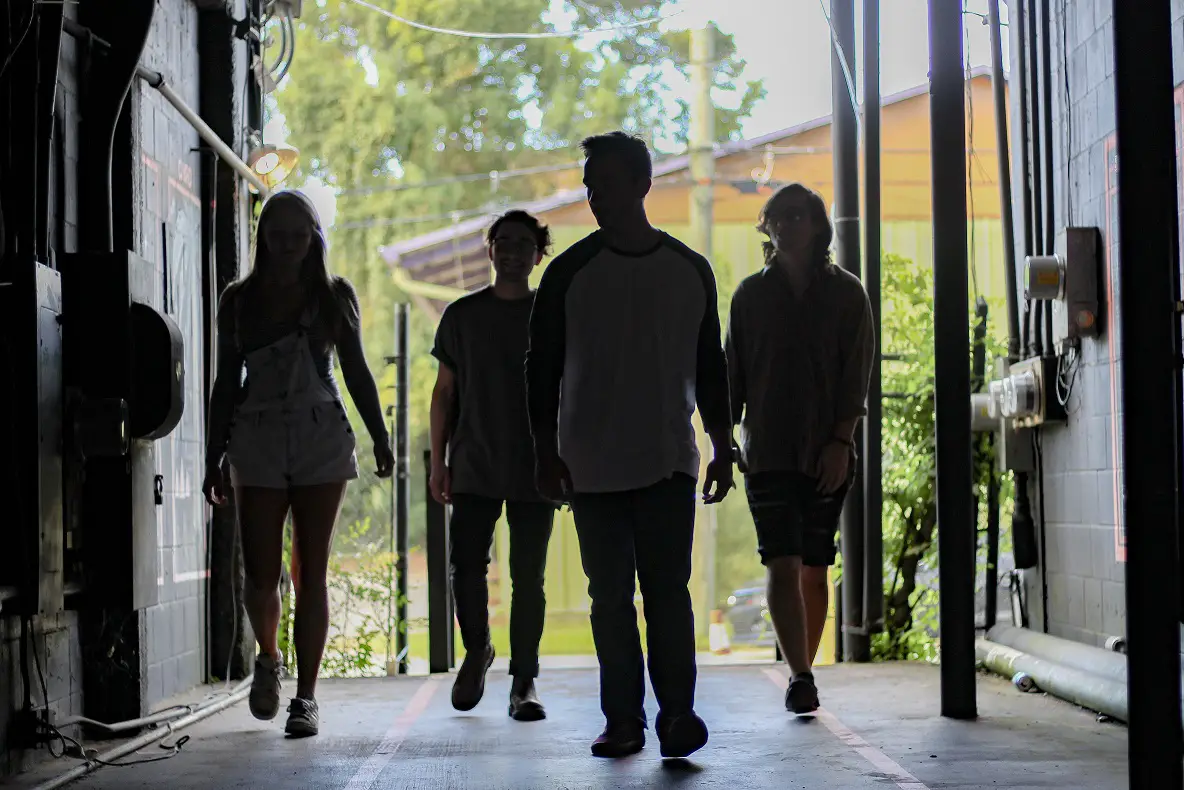Shakey Graves’ ‘Roll the Bones X’ is both a reissue and a celebration of the record that made him a beloved musician and the titular center of an Austin, TX holiday.
Stream: ‘Roll the Bones X’ – Shakey Graves
When Alejandro Rose-Garcia released his home-recorded debut album Roll the Bones, he almost certainly did not envision the record becoming one of Bandcamp’s top-selling albums of all time, nor was it likely he imagined the mayor of Austin declaring February 9th a holiday in his honor. And yet, ten Shakey Graves Days later, Rose-Garcia released the tenth anniversary edition of Roll the Bones, an album that continues to be one of Bandcamp’s top-selling albums and has made Shakey Graves a beloved near-cult figure in DIY music. Appearing on streaming services for the first time, Roll the Bones X (out April 2, 2021 via Dualtone), comes complete with a B side of “Odds & Ends” (which include grainy stories and field recordings) and a booklet with extensive liner notes for those who purchased the vinyl.
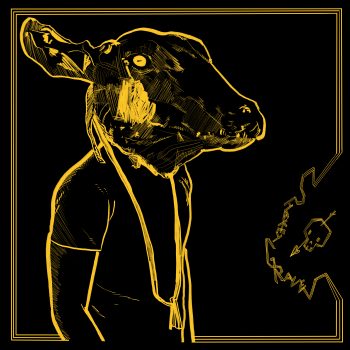
Shakey Graves is the type of musician who inspires YouTube rabbit holes, covetous heart-clutching at the mention of his name, and were we not living in a post-CD world, would make it onto many mixes. With a massive backlog of unrecorded songs and live video performances, it can often feel like a treasure hunt to stumble across the one live video you hadn’t seen before, or to wait anxiously to see what collection of demos or live performances Shakey would release the next SGD (when his entire discography becomes free).
Over the past decade, Rose-Garcia, obsessed with myths and lore, unconsciously crafted the mythos of Shakey Graves — a troubadour whose early days included being the official busker for a Mumford & Sons show in Austin, recording live videos from the inside of drain pipes, and meticulously winnowing hundreds of songs into what he wanted an album to be. He calls it “the search for his shadow” in the record’s liner notes. He built a guitar style on open tunings and unique finger picking patterns, built a drum out of a suitcase, and honed his singing voice — a voice that can whisper double-tracked vocals onto tape or fill a venue with a country wail. A couple years later, his Audiotree session, a recording that almost feels clandestine, would be viewed millions and millions of times.
Now, Rose-Garcia has a band. Two studio albums and a double LP of demos and oldies later, Shakey Graves is even more widely known and beloved. But ten years out from his living room recordings, Rose-Garcia is still the musician who elicits boasts about who knew about him first, who has seen the most shows (and in what venues), and who has heard the most unreleased tracks. And this, more than anything else, is what makes him Shakey Graves. Atwood spoke to Rose-Garcia about ten years of being Shakey Graves, Arthurian lore, and finding his shadow.
— —
Stream: ‘Roll the Bones’ – Shakey Graves
A CONVERSATION WITH SHAKEY GRAVES

Atwood Magazine: In the booklet intro in the special edition vinyl of Roll the Bones X, you talk about this search for your shadow in regards to music. You liken it to Peter Pan. Can you expand on this?
Shakey Graves: At my most magical of thinking, that is kind of how I perceive all of music. I mean, the thing that speaks to anybody about any song, I always find really mysterious — the thing that I hear and one thing somebody might not hear at all — the thing that just drives you insane about a certain combination of these very simple factors. There’s only so many notes and sounds but they can be arranged in endless ways. I feel like the part of really good music that speaks to me is like the shadow side of stuff. The act of making music can sometimes feel like pulling stuff out of nowhere. Suddenly getting inspired by something and then creating it feels really crazy.
I think my own journey of trying to figure out what I want to do with my time while I’m alive somehow ties together with this weird sense of, like, when you hear or see something for the first time and you feel instantaneously nostalgic for it in some sort of bizarre way. That sensation is maybe my favorite feeling. I’ve always thought it was really strange that you could miss something while you’re in its presence, or you can feel like you have a memory that doesn’t exist, and all that just feels like Peter Pan shit to me. Maybe there’s a magical island, who knows. I’ve always kind of playfully referred to that as my shadow. And to a certain degree, I have personified the idea of Shakey Graves as the name of my shadow.
In the liner notes for “To Cure What Ails,” you wrote, “I am now more confident than ever that there is no real life.” I feel like there’s always been Shakey the character set up in front of Alejandro the person. How has that character morphed? There’s suspenders Shakey, then there’s trucker hat Shakey...
Shakey Graves: I guess obviously, in fashion [laughs]. I mean, the name itself is kind of the one through-line, no matter what sort of musical package it’s in. It’s sort of a dark joke, like, haha, you’re dead. A lot of my questions about existence are kind of personified in the concept of Shakey Graves, in the sense that I genuinely have no idea what’s going on. Like, sure I understand that we’re all out here, and I’m talking to you on a cell phone, and I’m walking around, using my legs, but it all is pretty insane. [Laughs] It’s like, many late night stupid conversations with great friends of mine saying, “What’s going on? What is this? Maybe it’s all a dream.” It always kind of circles back around to the idea that I wouldn’t be surprised if there just is no dead, or we are dead, or, you know what I mean? I feel like I’m passing a bong around right now [laughs].
Basically, I have always wanted to have that conversation musically. Right now I’m on a huge Andrew WK kick. Not particularly because of his music, because some of it sounds like a computer wrote teenage boy music (which I’m still totally here for), but all the weird stuff that Andrew WK does. Like, it’s maybe a hoax about him not actually being Andrew WK – that basically Andrew WK is a made up character that three different people have played and he’s basically designed to be the ultimate frontman. It’s like this character that was created to be the god of partying. His albums have secret codes in them.
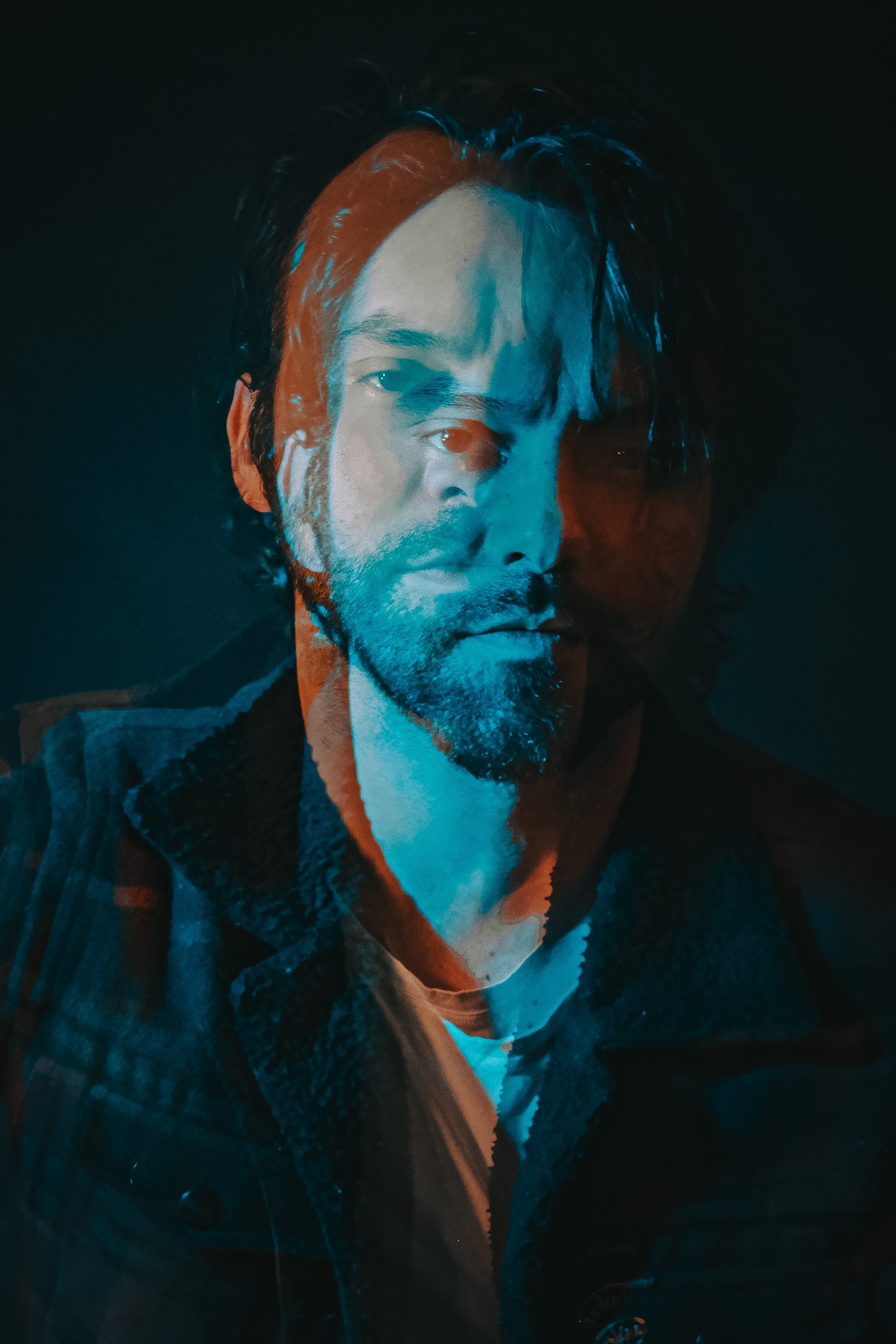
That’s some real Paul is dead shit.
Shakey Graves: Oh, totally. But when he does that, even though I’m pretty convinced that it is still just a guy who’s really creative, it excites me more than just like, Kings of Leon doing an NFT or something. So that being said, I haven’t gone that far into it yet with my own Shakey Graves stuff. But there’s a lot of stuff that I’ve put in my music and a lot of mystery that I’ve added to naturally, just in the way that I’ve written stuff. I have gotten responses from people about things that they’ve picked up on. I’m super into it. It’s something a little bit bigger than, I don’t know, me writing about my own truck or something.
I get the sense that you’re a big reader of weird stuff. Are there writers or books you can trace your inspiration back to?
Shakey Graves: Someone that was instrumental for me at a certain point was Richard Brautigan. He writes prose poetry and blurs that line really well. I always felt like he was so wonderful at using nonsense and also just kind of dropping my brain into a room or a building. I always felt yanked into a place. And as far as songwriters are concerned, I feel like people like Townes Van Zandt really did that for me, too. Another super influential work for me was The Sword in the Stone by T.H. White. And not the Once and Future King specifically, just the standalone Sword in the Stone.
Has that story worked as a metaphor for you on a larger scale?
Shakey Graves: Yeah, I read it at the exact right time. I was probably 19 or so, and it was while I was making all this music [Roll the Bones] that I read that book. I think what I took away from it was the way that he writes Merlin. That’s always really wonderful for me. Merlin exists in all time periods simultaneously, and they don’t really explain it, but he has stuff in his house from the future and the past, and he can’t remember what time he’s in. He keeps being like, “Did this happen yet? Did your dad die yet?” And Arthur is like, “What?” And Merlin’s like, “Oh, sorry, I forget where I am sometimes. We’ll talk about this later, or maybe we already have.” And I was like, “Fuck, yeah, that’s amazing” [laughs].
Then basically, the only way that Arthur ends up pulling the sword out of the stone is that he unknowingly learns all these lessons from being turned into all these different animals by Merlin as a kid. When he finally does pull the sword out of the stone, he is immensely sad, because he realizes that he’s gonna be the king. He’s like, “Fuck, are you kidding? I don’t want to do this at all!” They’re like, “Sorry, you did it, it’s what’s up.” In a sense, we all end up pulling many swords from many stones – kind of like the whole idea of “you can never go home again,” or at some point, realizing you’ve outgrown something. I also thought about it in terms of how you can get put in the position to realize that getting what you think would be really great is sometimes not what you actually want.
I think I hear that sentiment in the long history of your music.
There’s another thing in that book that I love so much. I grew up on Greek myths and Arthurian lore and just myths in general. Something I really loved is about King Pellinore in Arthurian lore — it was this whole story about the Questing Beast. King Pellinore is constantly chasing this monster that’s supposed to have the haunches of a horse and the head of a snake. The way that [White] wrote it was that it’s about the relationship that King Pellinore has with this beast that he’s always chasing. At some point, King Pellinoire ends up falling in love with this maiden that’s on an island, and suddenly the Questing Beast loses all sense of what its purpose is and it starts crying and wandering around on the shores of the island. I think creating art and other things in life can feel like that too. The point is the endless chase, and you wouldn’t know what to do with the creature if you caught it. But it wants you to chase it, too. I always thought it was such a great way to write this strange relationship. It’s like Wile E. Coyote and Roadrunner – you say, “I’m gonna get you!” and then the thing you’re after says, “No, you’re not!” And the moment you’re like, “Okay, nevermind,” it’s like, “Wait wait wait, I thought we had a deal.”
When you say it like that, it makes me think of how your live performance is such a shape-shifting thing. What’s the process of wrangling a song into a recorded version? Is that difficult for such a serial re-arranger?
Shakey Graves: That’s my questing beast. That’s why I love recording so much. I love recording way more than I love playing live, but it’s also two different things. Recording feels like trapping some sort of…it feels like being a Ghostbuster or something. Like, “There’s definitely a song in here. I did a little preliminary research. And there’s definitely a song in here. I don’t know exactly what it sounds like. But I think it’s over in this area.” And then you start to dig around for it. The difference between something sounding good and sounding great or sounding right is so arbitrary.
Sometimes the best version of the song isn’t the one that actually plays well with others. Like performed one way, it doesn’t stand up on its own; it needs accompaniment, thus an album. Maybe I pair it next to something, or play it down tempo, but then that’s never how I would want it recorded. So that is what I’m excited about, or what’s fun about live performances – the feeling of, “Oops, we did it like this.” And you can never have it on a recording unless you tried to bootleg it on your phone or something stupid, but like, oops, magic. I’m working on a record right now that is like, I’m trying to really lean into my serial rearranging tendencies. I’m trying to take my compulsive variation tactic and turn it into a thing you can play with.

More than any musician I know, you have such a massive and well-known back catalog of non-recorded songs. Was this intentional or did the ball just start rolling?
Shakey Graves: I can’t say it was intentional. Part of it is that I struggle with the process of crowd-pleasing versus self-pleasing, and what I want and enjoy in music is often not what other people enjoy. People will come and see a show where I have the worst fucking time on stage. My guitar string breaks, my fucking stupid luggage drum falls apart, I fix it in the middle of a song, and it’s just 90 minutes of pure torture. And afterwards, they’re like, “That was the best thing. I love that so much.” And I’m like, “Fuck you guys!” Then they’ll say, “Dude, that album you put out, it’s just not what I like, I just wish you would do stuff like this.” And the idea of sitting down and recording myself playing suitcase drum in my fucking house makes me want to jump off a bridge, even though I know people would love for that to exist – and to a certain extent, I would love for that to exist too. But I think what I’ve decided to really clutch pearl-wise is the fact that what people actually want to see out of most things is people enjoying themselves, kind of flat out. I think what people like is watching me enjoy myself and they like watching me explore stuff on stage, which I do a lot of. Part of it comes from just not being trained. So I am sort of making it up as I go along. I have a lot of confidence in fucking up because I was trained in theatre and I don’t feel weird standing in front of people and seeming like an asshole, for lack of a better term. I have fucked up in many various, incredible ways in front of people. It doesn’t scare me that much anymore.
I don’t think people would be able to tell either way, to be honest.
I hope at this point they wouldn’t be able to tell [laughs]. You know, when I first started to do the suitcase stuff, there were people who would listen to Roll the Bones and then come see me play and say things like, “Why are you yelling? What the fuck are you doing? This is like, my favorite record, I just found it on Bandcamp. And you just are terrible at these songs.” And I was like, “I know, I know.” And then later people would start to be like, “The shows are rad,” and then they’d buy my record and be like, “Dude, I bought your record and went home and put it on and what is this shit?” I have just come to terms with it; I cannot win. Either way, I feel like I have lost that battle. But without one, there wouldn’t be the other. If I had recorded every live version, is that really what people would listen to? I don’t know. Or is it the fact that they like going down these weird rabbit holes of like, “It’s only on YouTube. So you’ve got to come sit by my computer and then track it down later.” Is that the only reason that my music has been continuously passed from person to person?
Switching gears, can we talk about Bruce Springsteen? “I’m On Fire” is your only officially recorded cover and what you said about it in the booklet is so striking: “...I spent years avoiding Born In the U.S.A. It took me a long time to recognize it as the masterpiece of subversion it is, a troubled album about a troubled nation masquerading as fist pumping anthem rock.” Would you say this past decade in this country has impacted your musicianship?
Shakey Graves: The thing with Bruce is that I always kind of rebelled against him when I was little. I was like, “This is some corny shit.” My parents both loved it, and they were like, “You’re wrong, and you’re gonna feel like an idiot at some point.” They were definitely right on that count. He’s a super subversive writer. Nebraska had a huge effect on me, but the first album of his that I really fell in love with was Darkness on the Edge of Town. Like, I don’t identify with factory workers and Midwestern car machismo; none of these things connect with me. But it’s such a character piece. I’m also like, “That’s not who Bruce Springsteen is, there’s no fucking way. He’s never worked in a factory.” Like, I know this. If he was a photographer, he would shoot really high contrast, saturated photographs. They wouldn’t be subtle; they would be super dense and have really drastic light, probably, like a little too bright and punchy.
I definitely paint with that brush myself. But also like, I’m not apolitical – I keep up with everything, and I’m driven insane by the inequalities of life and the fucked up nature of the world that we live in. But I also prefer to take a note from his book of how to write about that through character pieces. Ten years ago, I was writing what I thought were more veiled character pieces, but they were definitely about me as a younger dude. I’m still using those same tools to write, but the world around me has definitely shifted massively. I find myself writing less and less about my own struggles and more and more about just the environment. Not like the Greenpeace environment, not like the whales [laughs]. But you know, sort of like, I just mean our term here on… you know, being alive.

Shakey Graves: Yeah, “Word of Mouth” is…Some of the songs feel a little bit more magical, like, I’m not even really particularly sure what they’re about, or there’s a crazy guitar piece that I also wrote good lyrics over that I’m proud of. But that song was very much a song that anyone could play. It’s like a traditional waltz. So it’s a classic storytelling song. It’s very Brucey in that sense; like, it’s big, saturated characters. My girlfriend doesn’t know any Bruce, per se, but she ended up listening to his new album. And she’s like, “He seems to have this thing where he has the title of the song. And then he keeps doing different characters, and then applies the title contextually at the end of each one, and then he says the name of the song,” and I was like, “Yup…that’s what he does. That’s his thing” [laughs]. It’s funny. “Word of Mouth” kind of does that. That’s the thing I like about it; it applies to every year. It doesn’t sound like I was writing about the 2000s, or the 90s, or the 80s, or now. It’s definitely a little more political, or it’s somehow apolitical, but it’s still pointing at the problems I’m talking about, as opposed to judging them in any way. Which, I think if I really tried hard to write something like that, it would come out really badly. That one just sort of fell out. Personal joy. And sort of that sense of nostalgia in real time. I hope that if you listen to it, you feel like you have a memory of something that didn’t even happen to you. That’s my favorite thing, and I hope that you experience that through those songs. — — — — — —
You said almost ten years ago in a live video of “Word of Mouth” that it’s the song you would want to be remembered for. Is that still true?
What do you hope people are getting from Roll the Bones ten years later?

Connect to Shakey Graves on
Facebook, Twitter, InstagramDiscover new music on Atwood Magazine
? © Magen Buse
:: Stream Shakey Graves ::

